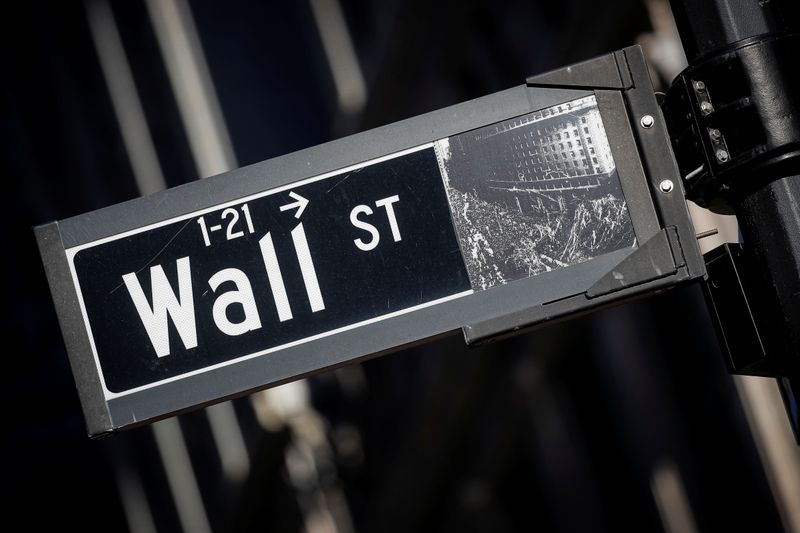 © Reuters
© Reuters
By Geoffrey Smith
Investing.com -- U.S. stock markets opened mostly higher on Friday as the market recovered from the latest inflation shock.
By 9:45 AM ET (1445 GMT), the Dow Jones Industrial Average was up 172 points, or 0.5% at 35,414 points. The S&P 500 was also up 0.5% and the Nasdaq Composite was up 0.4%.
The publication of the highest annual rate of inflation in 40 years on Thursday was followed by a raft of forecast revisions from Wall Street banks to reflect an even faster tightening of monetary policy than previously foreseen. Short-term interest rate futures now attach an 80% likelihood of a 50 basis point hike in the Fed Funds target rate when the Federal Reserve's policy-making committee meets in March, while Goldman Sachs (NYSE:GS) analysts now predict seven quarter-point increases this year from the Fed.
The market has been quick to internalize the new situation, suggesting that many participants feel either that an aggressive tightening is already priced in or, as seems increasingly likely, tighter monetary policy may tip the economy into recession, removing the need for rate hikes.
However, there are still plenty of willing sellers into any strength. Gains were trimmed within the first half-hour of trading, with selling in long-duration tech names again prominent, pushing the Nasdaq slightly into negative territory.
Bears were supported by fresh signs that the boom in consumer spending since the start of the pandemic is coming to an end. The Michigan Consumer Sentiment index for February fell to 61.7 from 67.2 a month earlier, defying hopes for a modest increase to 67.2. The survey showed a pronounced drop in assessments of current conditions, but five-year inflation expectations remained unchanged at 3.1%.
With the week's biggest earnings releases over, there were few big moves from any stocks large enough to affect broader sentiment. Affirm Holdings (NASDAQ:AFRM), the Buy-Now-Pay-Later fintech whose partnership with Amazon (NASDAQ:AMZN) raised such high hopes for the stock at the end of last year, fell 11% after it published a wider net loss caused largely by stock-based compensation. That leaves it testing a nine-month below, well below where it was before the Amazon announcement.
Zillow (NASDAQ:Z) stock, by contrast, bounced from its recent lows after its quarterly report late on Thursday showed that the property market is still hot enough to wind down its ill-judged home-flipping business without too much financial pain. Zillow stock rose 10.8% but is still only worth a little more than a quarter of its peak a year ago.
There was also evidence of further exits from some of the market's most richly-valued large caps. Chipmaker stocks Advanced Micro Devices (NASDAQ:AMD) and Nvidia (NASDAQ:NVDA) fell over 2% each, while Tesla (NASDAQ:TSLA) stock dipped below $900 again, losing 1.4% at the end of a week punctuated by recall announcements.
There was better news from the travel sector, where Expedia (NASDAQ:EXPE) stock rose 1.9% after its numbers encouraged hopes that the disruptions from the pandemic are largely over.

